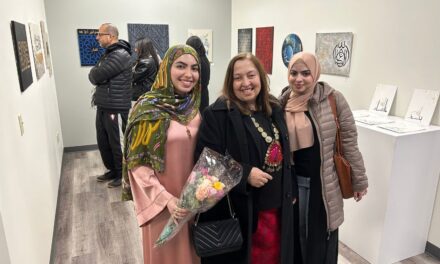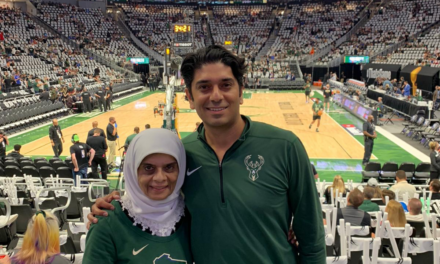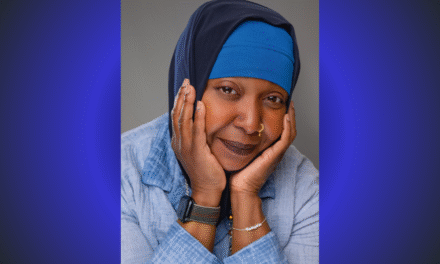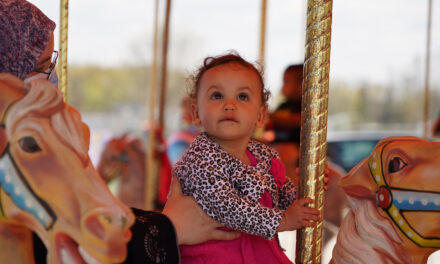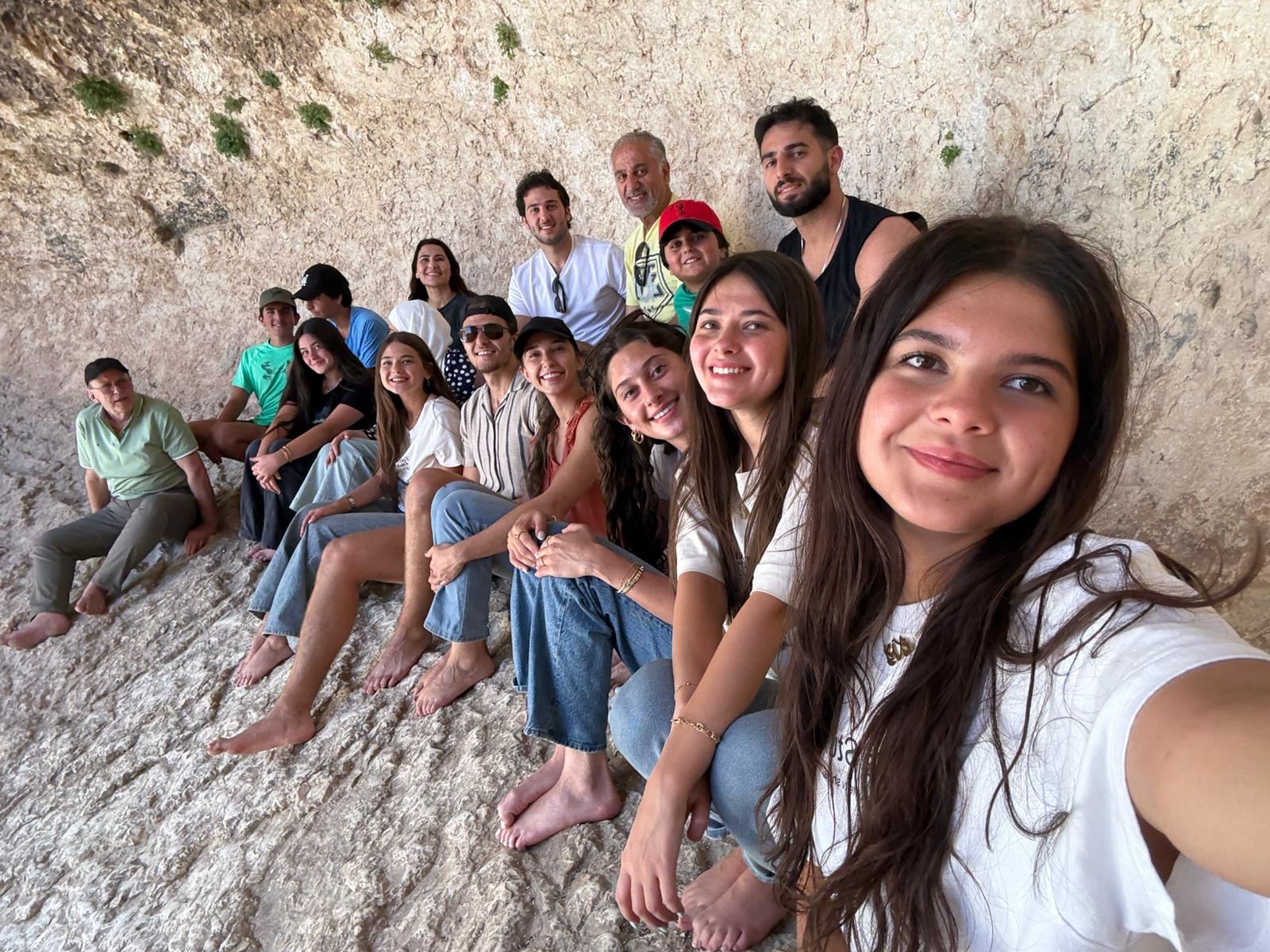
In Syria this summer, Brookfield residents Chihab Bilal, M.D., Ghudran Abdulal, M.D., and their children Magd, Samer and Miya traveled with relatives to Maaloula, where Aramaic, the language of Jesus, is still spoken.
This summer Chihab Bilal, M.D. and Ghudran Abdulal, M.D. took their three children Magd, 28, Samer, 23, and Miya, 19, to visit their families in Syria. They had not all traveled there together in more than 15 years. Chihab was last there in 2010.
“The kids had a great time, seeing all their cousins, chatting, laughing, spending the night together,” Chihab said. “Hearing them laughing, that gave me joy.”
“The family connection felt great!” Ghudran agreed. “I recall the days when they were little and everyone would get together. They haven’t had that.”
After a devastating 13-year war, Syrian Americans are visiting their homeland—reuniting with family members they haven’t seen in more than a decade and showing their children their own childhood homes.
They remember Syria as a place of good times with family, but also a totalitarian police state. The Assad family governed Syria for half a century, imprisoning and torturing critics and crushing dissent.
In 2011, Syrians rose up with mass protests. The government’s brutal crackdown and subsequent civil war killed hundreds of thousands of people and caused 13 million to flee.
On Dec. 7, the Assad regime fell and dictator Bashar al Assad fled Damascus to Russia. Syrian Americans in Greater Milwaukee gathered Dec. 8 at the Islamic Society of Milwaukee Community Center to celebrate. They danced and waved the three-star flag of the revolution.
With a new government in place and the work of rebuilding beginning, some of Wisconsin’s Syrian Americans are eagerly taking the opportunity to visit. Wisconsin Muslim Journal interviewed some who went back this summer. They described the joy of family reunions, the pride in sharing their native land with their children and the hope in a new beginning.
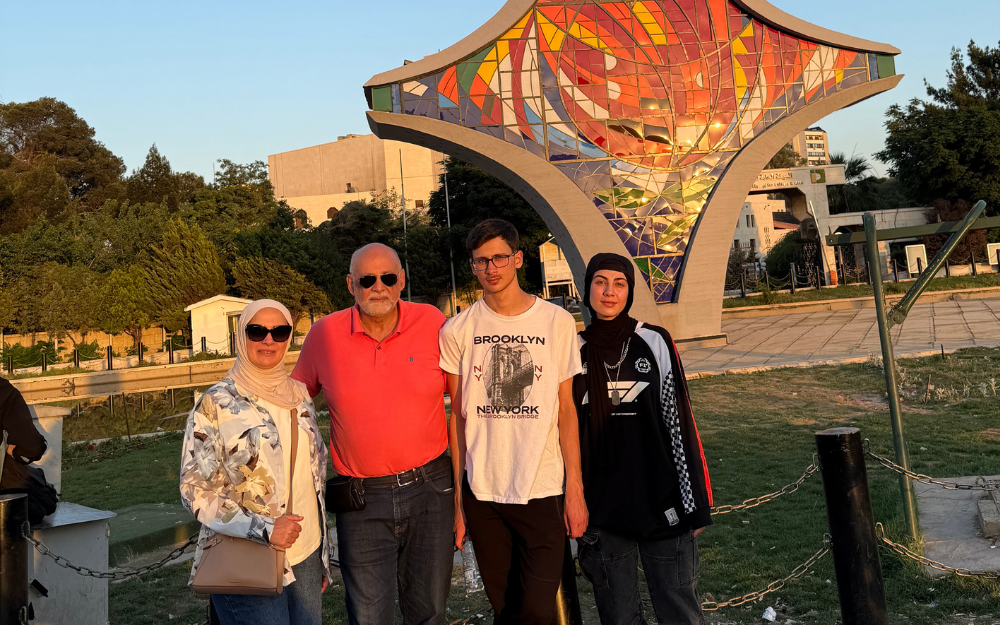
Hala, Ayman, Kareem and Ayah Alamy of Franklin pose in front of the Syrian Sword in Damascus.
Ayman had not been to Syria himself for 17 and a half years, he said. “The last time I went was when my mom passed away. My dad had passed before that. After that, the war started in 2011. It wasn’t safe and I didn’t want to take any chances.
“So, I took it out of my mind. With the regime there, I didn’t think I’d ever go back. When the revolution happened, Syria changed 180 degrees. I thought, ‘That’s it. We’re going.’ Ayman and Hala wanted to show their native land to their children.
“We showed them the grand Umayyad Mosque in Damascus, the Palace Museum and others,” he added. “We took them to restaurants every day,” Ayman said. “They really love the food. They loved having a fruit cocktail every day. It’s something we don’t see here in Wisconsin. It’s so thick, you eat it with a spoon.” The slushy blend of fresh fruits is made in small shops found, it seems, on every block in Damascus.
“The taste of the local fruit is amazing,” he said. “There are some different fruits than we find here. We’d bring it to the hotel and eat every day.”
“Kareem and Ayah enjoyed going to the market and buying unique things,” Hala said. “They also loved walking in the old city of Damascus. It is completely different from here.”
“In addition to the ancient souk, there are modern malls, too,” Ayman said. “They were impressed to see that in Syria.”
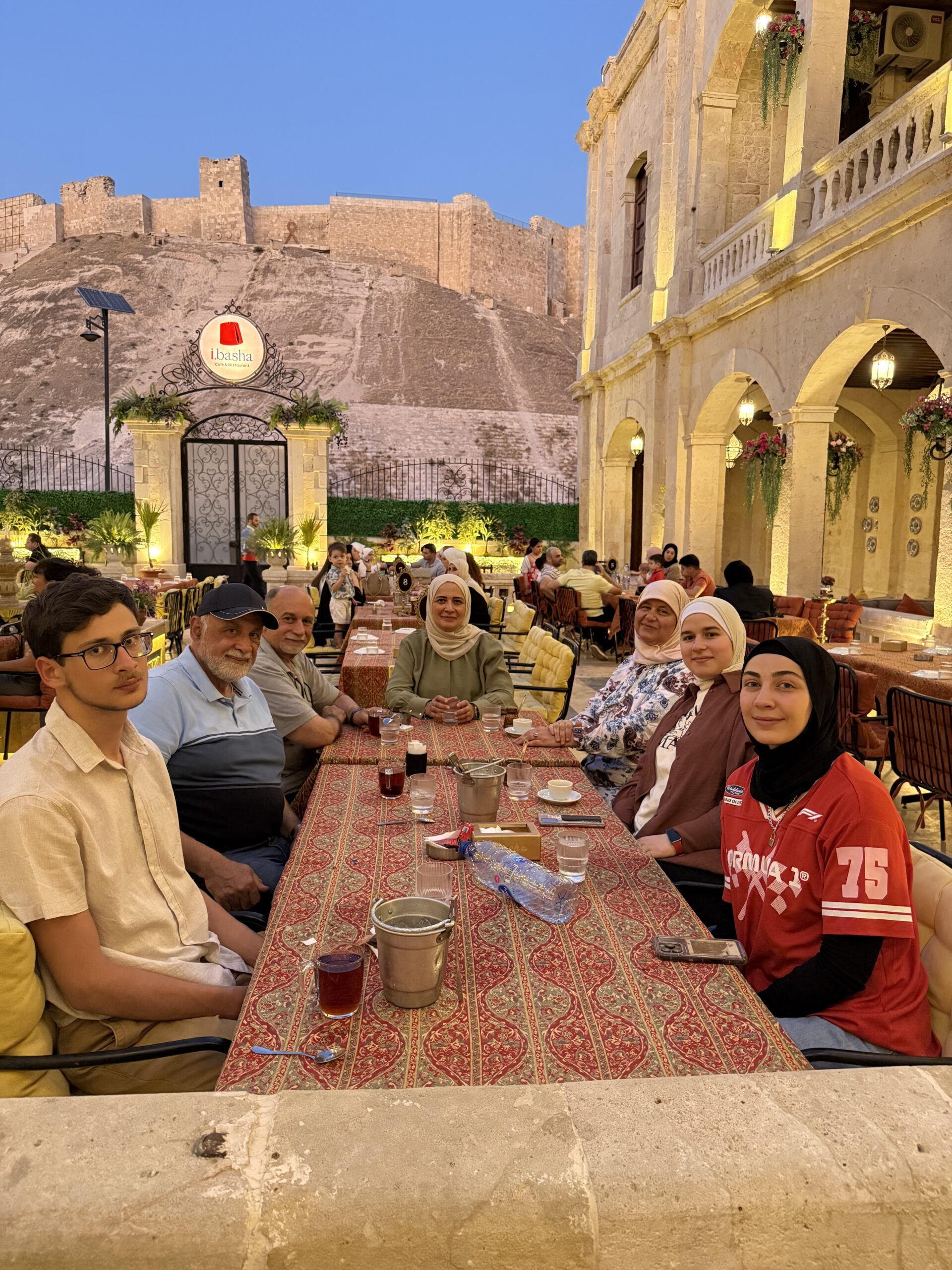
The Alamy family and relatives
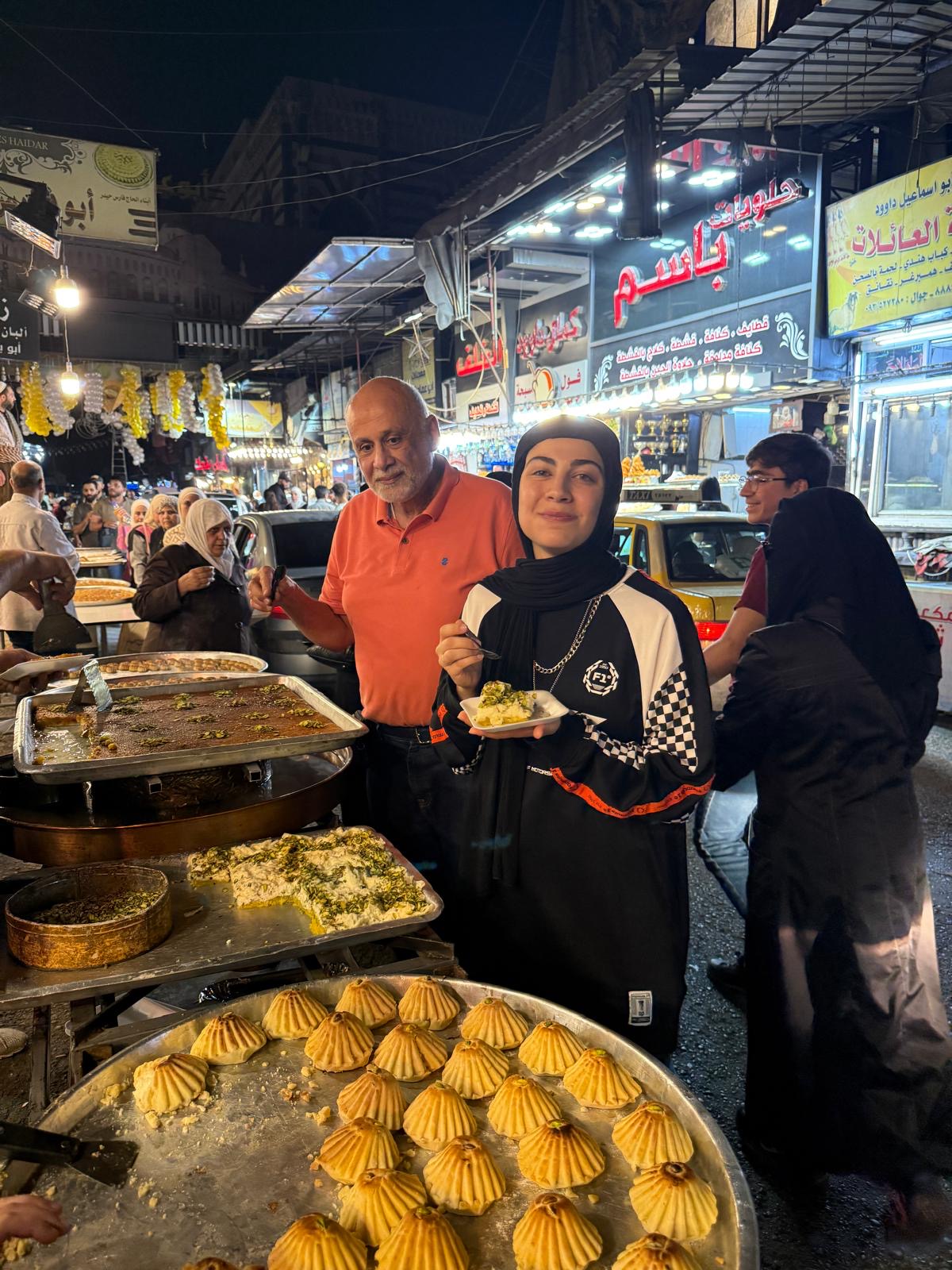
Ayman Alamy and daughter Ayah
They stayed in a beautiful, 300-year old Syrian home made into a hotel. “We wanted to stay in a Syrian place, not the modern hotels like the ones we are used to here. The high ceilings, rich wood, fresh flowers—it was beautiful.”
They had been turned into five-star hotels “with internet and electricity 24/7,” he noted. “So, we didn’t miss anything when we were at the hotel.”
That wasn’t the case elsewhere so they had prepared Kareem and Ayah to keep their expectations in check.
“Everything is still hard for Syrian people to get,” Hala said. “And very expensive. But I noticed people look relieved. They look happier than the last time I went to Syria three years ago, before the liberation.”
The family spent three weeks in Damascus, then went to Latakia for four days and Aleppo for a week, where Hala has family. They visited Bloudan, a scenic area in the mountains near Damascus, the Umayyad Mosque and the Syrian Sword, a modern, colorful monument in Damascus.
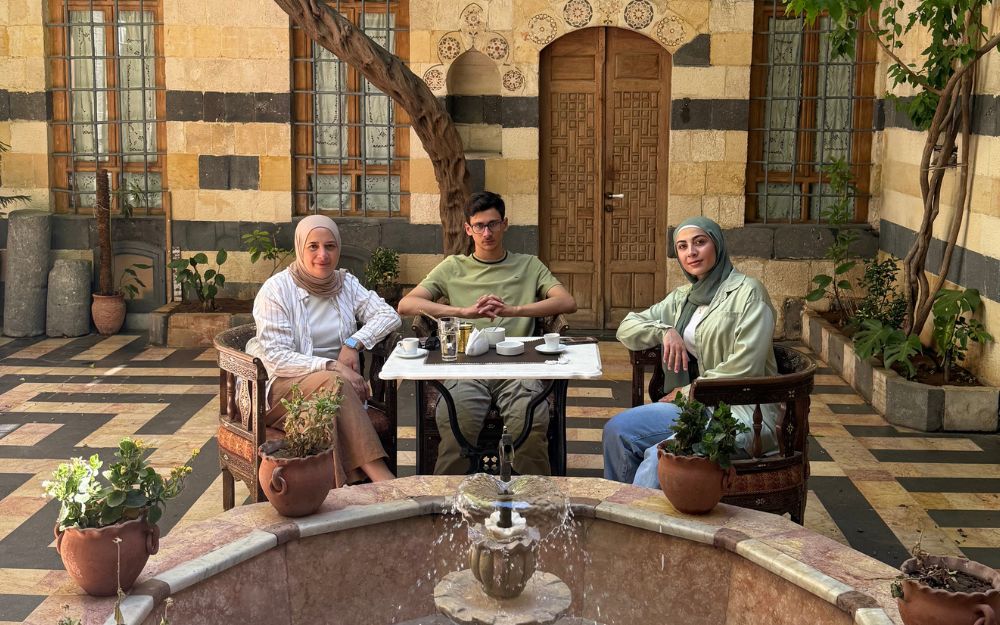
Hala Alamy with son Kareem and daughter Ayah enjoy sitting at a fountain in the courtyard of a traditional Syrian home.
“We were so happy to meet some friends who shared their experiences of how they lived during the war,” Hala said. “We noticed that some people were very optimistic that things will be better in Syria.”
“We had some worries before we went about safety because it is a newly established government,” Ayman said. “It is not a hundred percent stable. But we took a chance because we thought, if not now, when? And we wanted to go so badly.
“Our souls came back to us the moment we touched down at the airport. I saw my one brother who is still there. People were so happy receiving people at the airport, crying, greeting them.
“We were able to show Kareem and Ayah my high school, the place I worked as a teaching assistant at Damascus University. We saw my old neighbor. He’s still there. He was very thrilled to see us.
“I was able to show our kids my family house where I grew up and the school I went to. It was an amazing experience,” said Hala.
A joyous family reunion
Waleed Najeeb, M.D., of Mequon had not been to Syria for 18 years. A volunteer with the Syrian American Medical Society (SAMS), he had been as close as Jordan, Turkey and Lebanon, providing medical care for Syrian refugees. This summer marked his first trip to Syria.
“I planned to go with tremendous excitement,” Waleed recalled. “I used to force myself to accept I would not be able to go to Syria because of the situation there. So, this time, I couldn’t wait!”
Waleed arrived in Damascus June 29 and the celebration began.
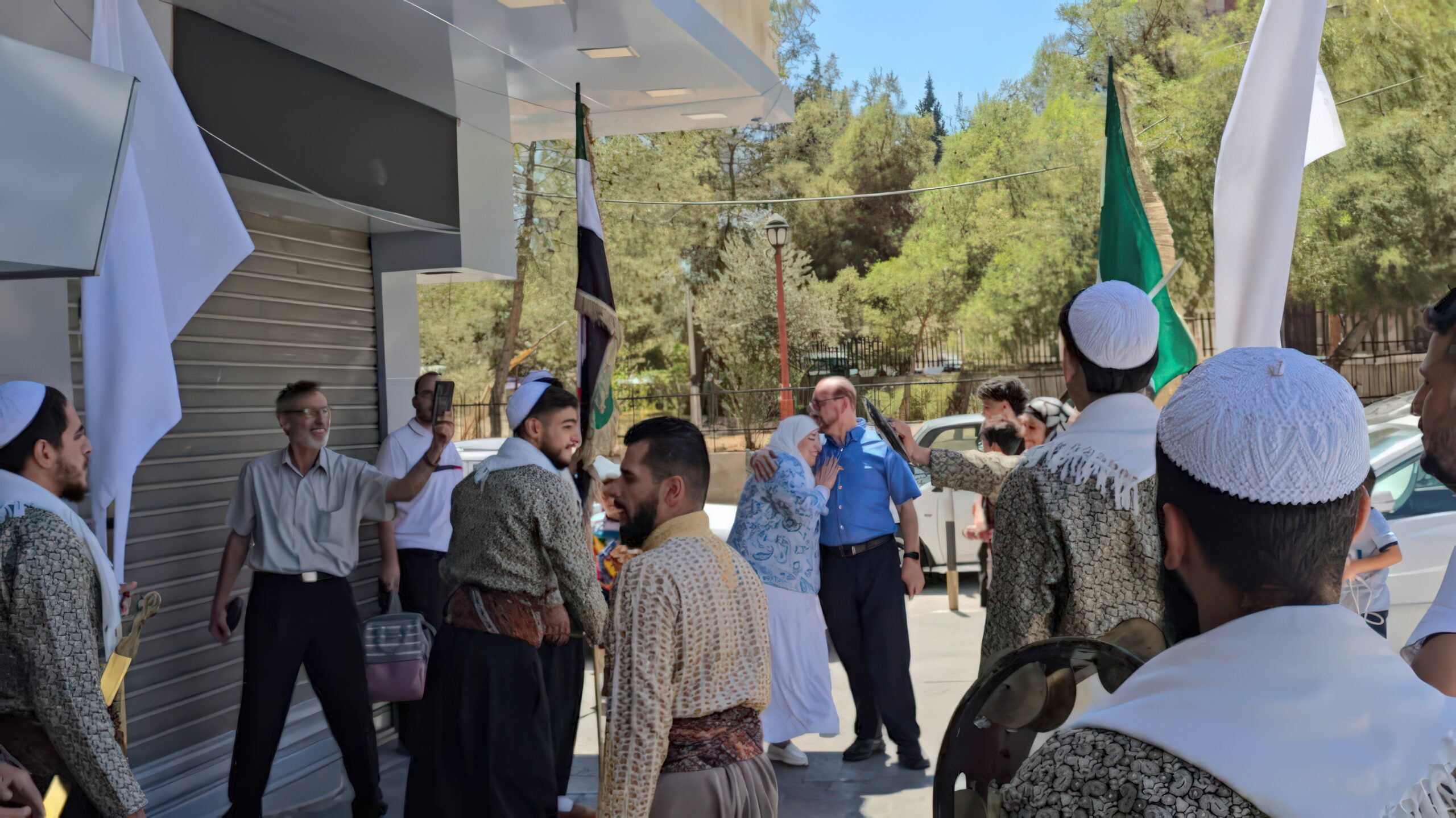
Waleed Najeeb, M.D., of Mequon is greeted home with great fanfare, organized by his sister.
“When I arrived at the airport, 80% of my family was there. When they saw me, they played a song about Syria and everyone waved the new flag. In the parking lot, they had a traditional dabke drum band.” They piled into cars and drove home, waving flags out the windows and beeping the horns.
The celebration continued on the street in front of the family home. “At each window of all the building, maybe about 10 stories high, everyone was looking to find out who is coming. Even people who don’t know me were excited. It went on for 45 minutes, with chanting and singing.
“My aunts, cousins, nephews, nieces, so many people were there. Many of them, I did not even know them because they’re 18 years old or younger, born after I visited last time. I didn’t know them but they knew everything about me and my family. They were following me on social media.
“I was really celebrity there. Every day, one family prepared dinner. They did not repeat the same meal twice for the whole 12 days I stayed in Syria.”
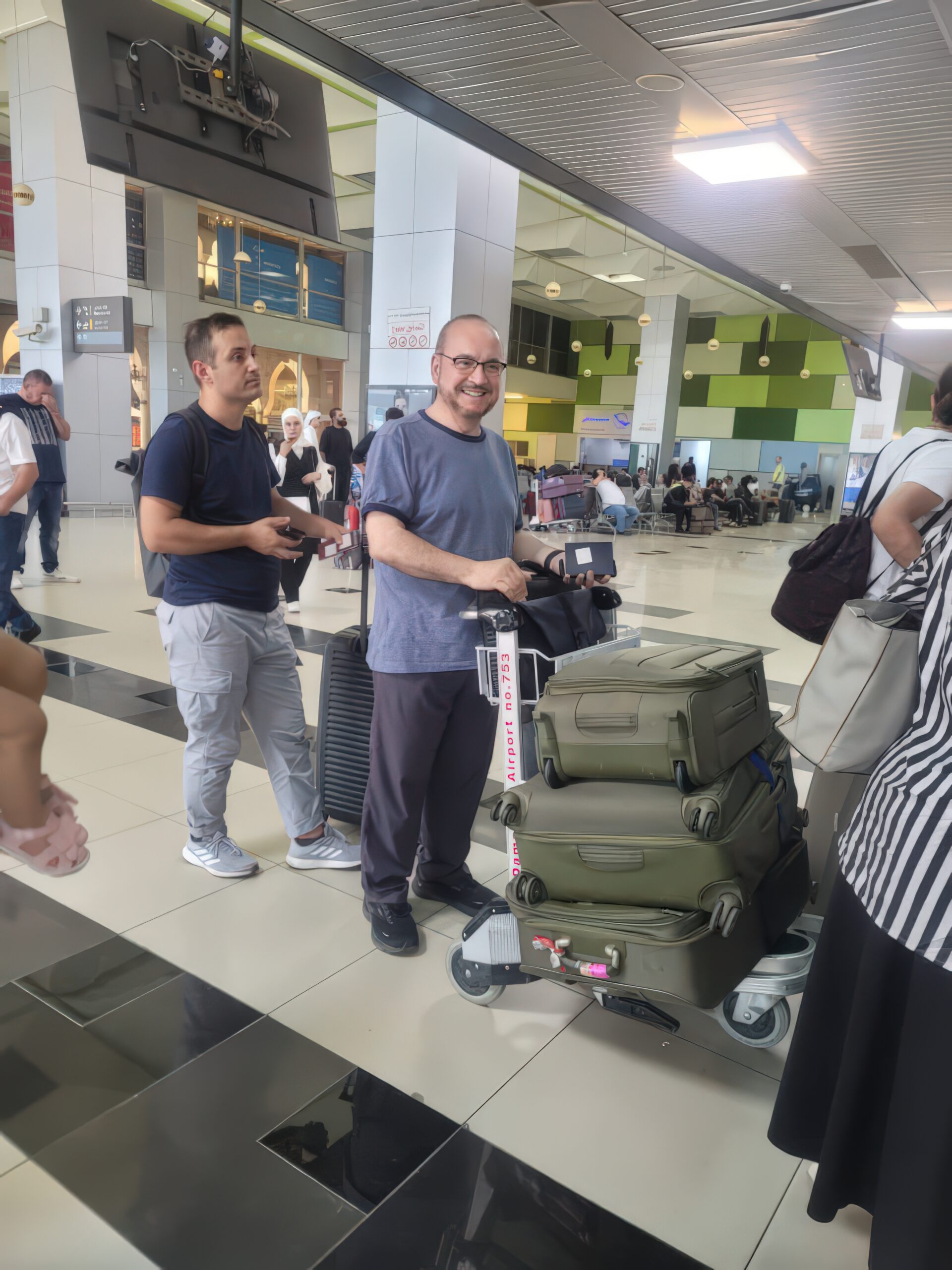
Waleed Najeeb, M.D., arrives in Syria for the first time in more than 18 years.
Waleed’s younger sister planned his visit, “from the food to visiting friends, the medical school, the sights, things I had forgotten. Every morning, she’d drive me to a different mosque for prayer. Afterwards, I’d speak with some people and the imams. Some of them knew my father, some knew my friends. I felt very emotional. It was a unique reunion with the people and the country.
“Everything really looked new to me because I’m looking at it now with a different emotion than before,” Waleed said. “The funniest thing was seeing security guards. When I looked at them, I knew they were there to protect me, not to arrest me or torture me. I asked them if I could take a picture with them. We did. It was not like before.”
Waleed attended a three-day medical conference for SAMS, the first it has been able to hold in Syria. “Many people joined and there was a lot of interaction between the visiting doctors and the Syrian medical students,” he said.
Waleed toured the senior medical students’ poster presentations. “Whenever I saw one in my specialty, I spent time talking with the student, giving feedback and encouraging them. We exchanged numbers.
“It gave me a pretty good idea about the condition of the healthcare system there, which is really below zero now. SAMS is taking it on as a project, to reestablish the healthcare system from the ground up.”
Syria too needs to be built back. “The standard of living is way below our standard of living here in the U.S.,” Waleed said. “But the amazing thing is that everyone I talked with, and I talked to so many people, everyone was so happy, so optimistic. They are sure the situation is going to improve.”
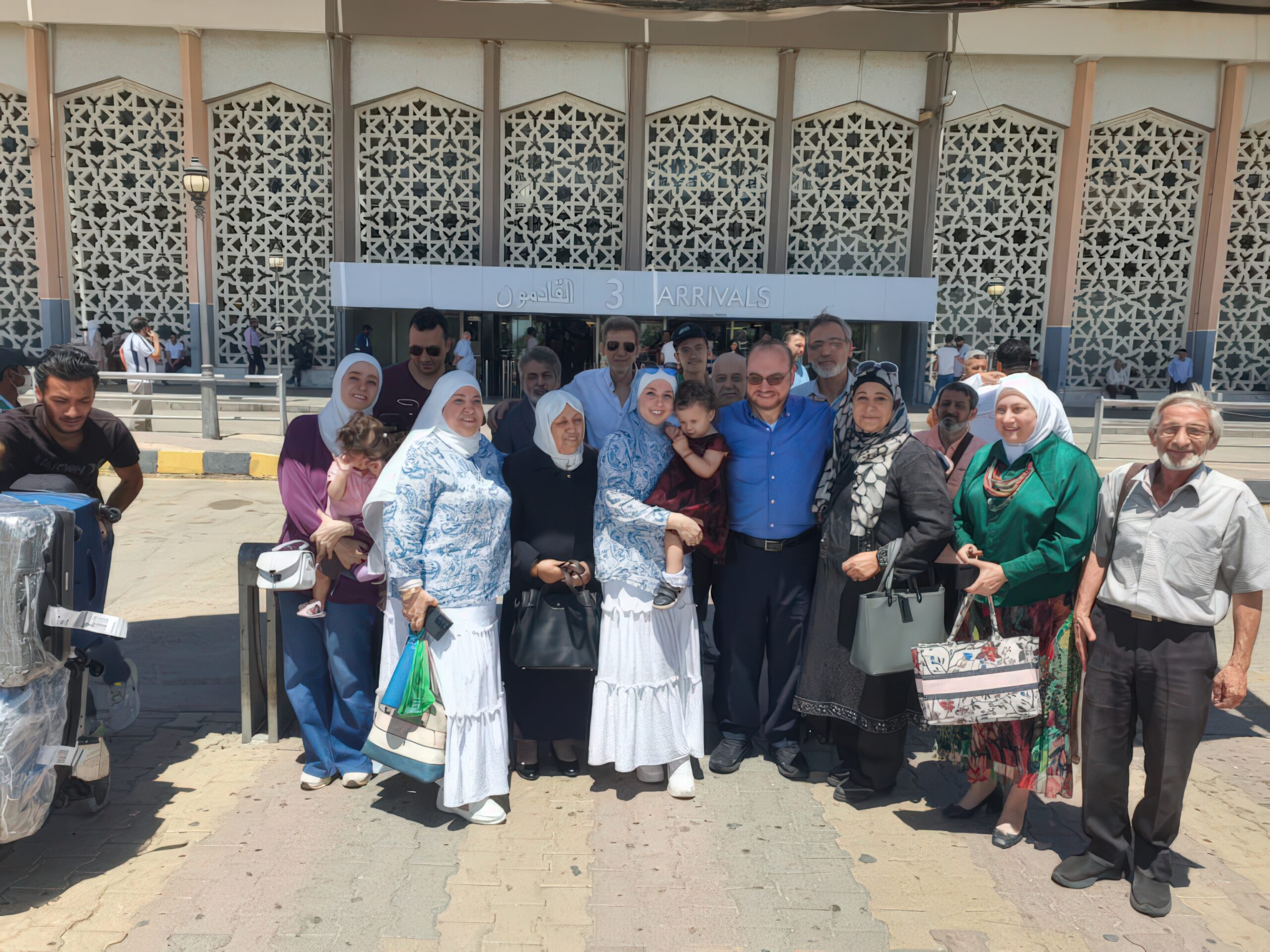
Waleed Najeeb, M.D., enjoyed 12 days in Damascus with family and friends.
A spiritually uplifting trip
Mohammed Kher Heder, M.D., of Brookfield traveled with his wife and daughters to Syria in Ramadan, “right after the collapse of the brutal regime,” he said. “It was a spiritually uplifting experience.
“You could see and feel the difference the moment you crossed the border (I went through Jordan at that time).
“You see signs welcoming you; you see people are nicer to you. And instead of the fear we used to feel under the prior regime, now you feel that you are connected, that the people are full of energy and hope.
“They hope for a civil country with an advanced and stable economic situation, with prosperity and peace and security for everyone.
“The mosques were filled with people praying and families were all together for iftars (the meal before dawn and fasting all day).
“There are some challenges still there. It’s a newborn state after long years under a dictatorship. We are hopeful our country will develop quickly.”
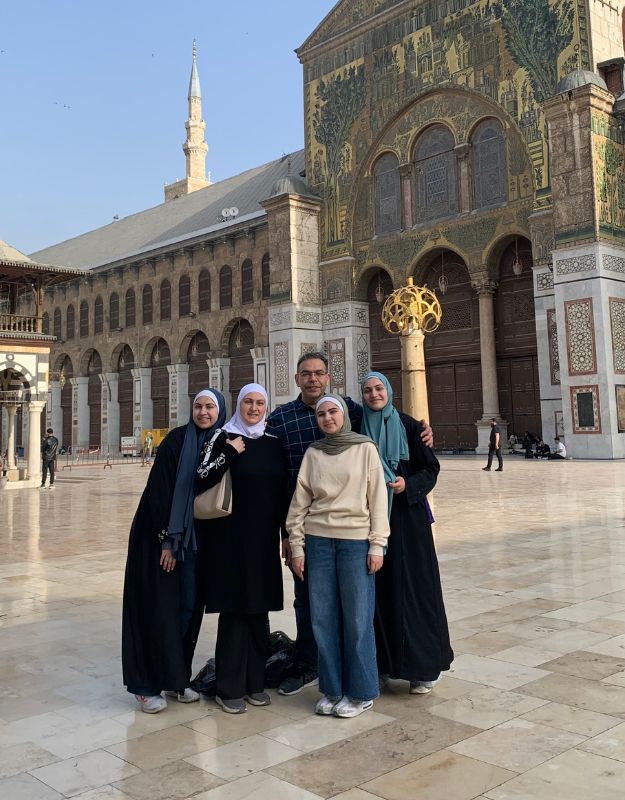
Mohammed Kher Heder, M.D., and his family visit Umayyad Mosque.
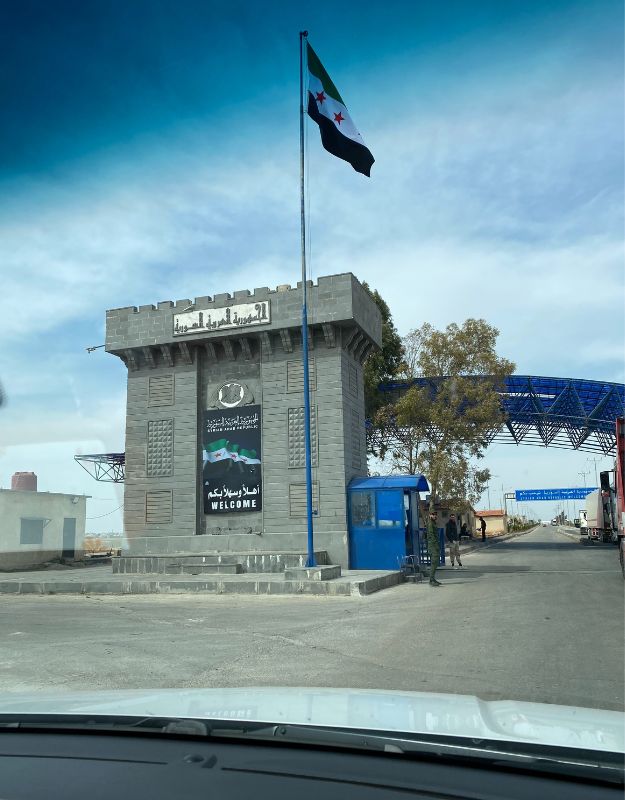
Check points and borders feel welcoming now, Dr. Heder said.
Dr. Haider took his family to Midan, the part of Damascus where he grew up. “They enjoyed connecting to their roots, and especially me, seeing the extended family.
“We visited the souks and bazaar, filled with sweets and food. Everybody was welcoming visitors, making them feel they are in their hometown regardless of their background.
“I was able to visit my mom’s and my sister’s graves. Unfortunately, I was deprived of visiting them and participating in their funerals due to the political situation. He had not been in Syria for 15 years.
“We were able to participate in my nephew’s engagement party. It was a very happy occasion.
“We were there eight days, a very short but concentrated visit. We will visit again.”
Family connections
For Chihab Bilal and Ghudran Abdulal of Brookfield, taking their children to Syria from June 24 to July 4 was the blessing of a lifetime. Watching Magd, Samer and Miya, now young adults, with their cousins, laughing and talking was the best part of the trip, they said.
The family stayed in Damascus, at Ghudran’s family home, where relatives gathered. “It’s a relatively big house where everyone could spend as much time as possible together,” she said.
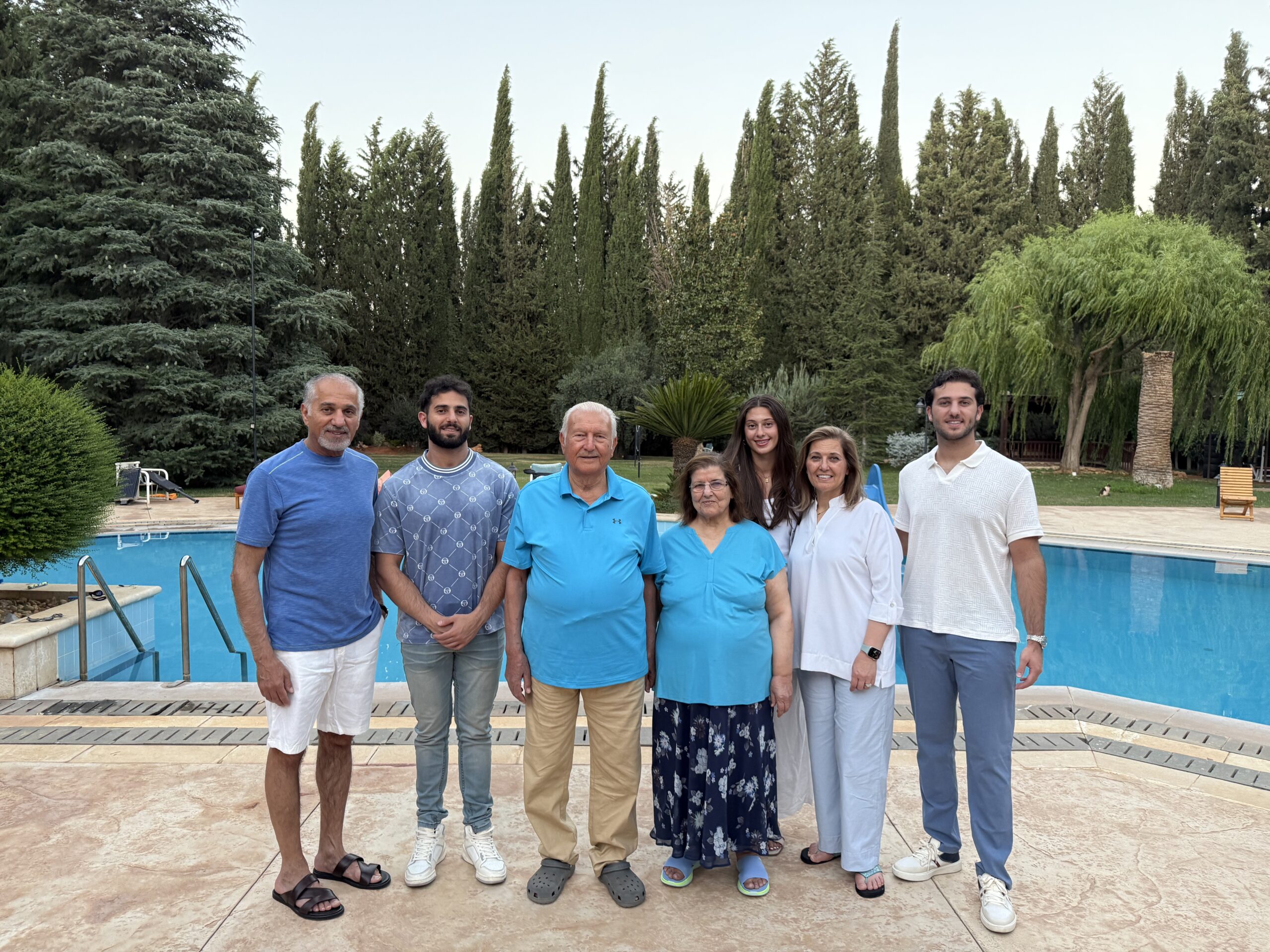
Left to right, Chihab Bilal, M.D., Magd Bilal, Ghudran’s father and mother, Miya Bilal, Ghudran Abdulal and Samer Bilal
They flew to Istanbul but had to wait to go to Syria because of fighting between Iran and Israel. “Our flight to Damascus was canceled. We had to take a flight to Beirut and rent a car and driver to take us.” They arrived at the house where relatives were waiting.
Chihab had not been to Syria since 2010. “When we crossed the border from Lebanon to Syria, I felt the nostalgia and joy. Now I’m in my country. I couldn’t wait to see everyone.
“It touched my hear when I checked into Syria at the border,” Ghudran said. “I felt so welcomed by the security officers. In the past, they made you wait a long time and ask lots of questions. ‘Why are you here? What have you been doing in the States?’”
“It felt kind of run down and neglected. It wasn’t as clean and beautiful as I remember it as a child. That gave me some sad feelings,” Chihab said. “And it was so crowded.”
“A lot of people were coming back to visit at the same time,” Ghudran explained. “The war finally stopped after 13 years and everyone could go back safely.”
Chihab high school friends. “They were happy to see me and I was happy to see them. I surprised them. Most of my friends from school and college are out of the country now—France, Germany the Persian Gulf states. I don’t have many left in Syria.”
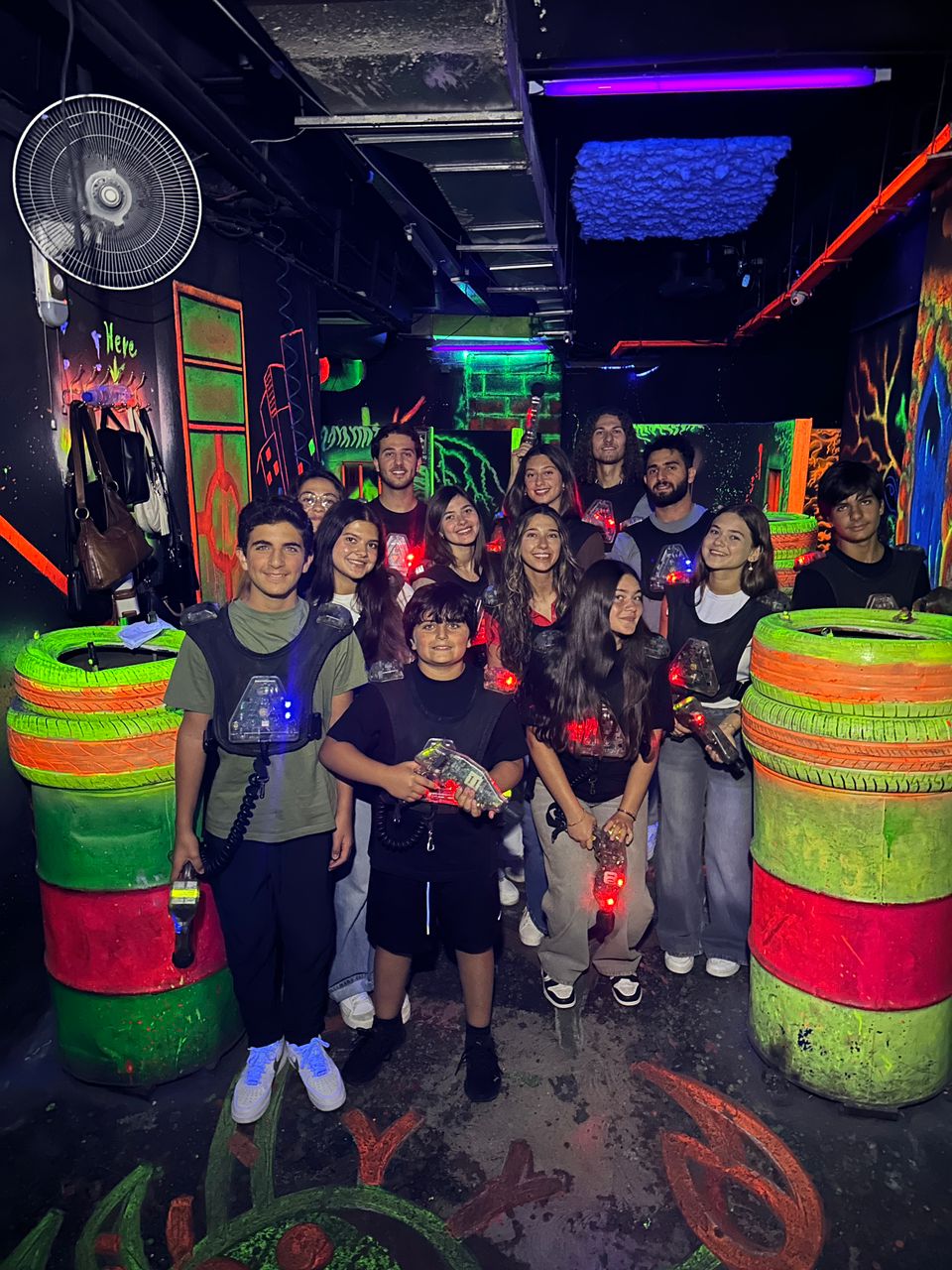
The Bilal siblings enjoy an outing with their cousins.
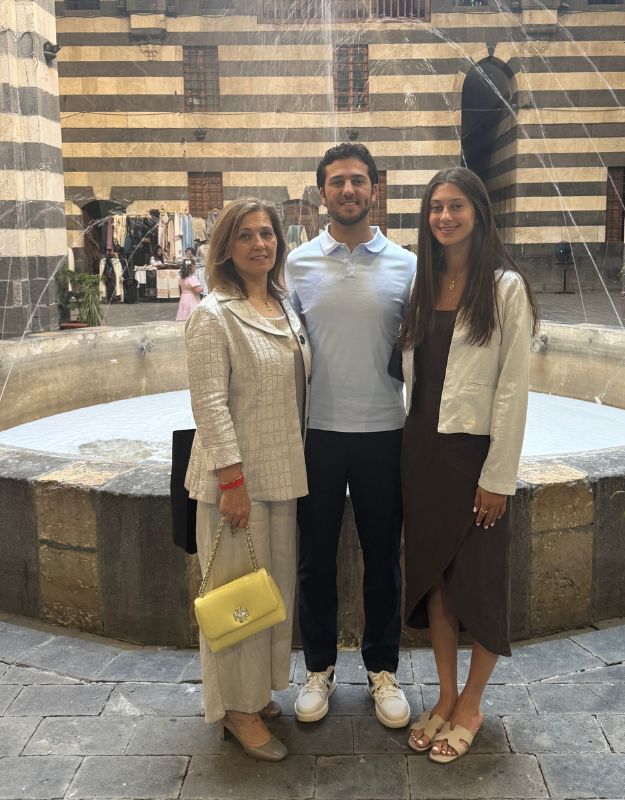
Ghudran Abdulal with son Samer and daughter Miya Bilal.
Like Waleed, Ghudran participated in the SAMS conference. “It was great to attend the first international conference for SAMS in Syria,” she said. “It wasn’t possible before because SAMS was hated by the regime for treating people who participated in the revolution.
“Getting together with Syrian Americans from all different states to try to do something to help the country’s health system was very rewarding,” she said. “It gives us enthusiasm to continue. I visited a hospital and a clinic and saw how much work is needed. Now we can work in all of Syria and start rebuilding the old hospitals and refreshing their system.”
At the airport as they departed, “our kids were really sad to leave,” Ghudran said. “I had not expected them to feel that way, coming to a place with limited electricity and water. But they were happy being together with the family, going out places with their cousins. They saw historical sites and were very impressed.
“It was a great feeling to go after liberation,” Chihab added, “getting connected with family and feeling hope that the country is going to be rebuilt.”
“And then one last thing,” Ghudran added. “We are so happy that the United States is now on the side of helping Syria become better and heal in a good way. That gives us hope for a good future.”
